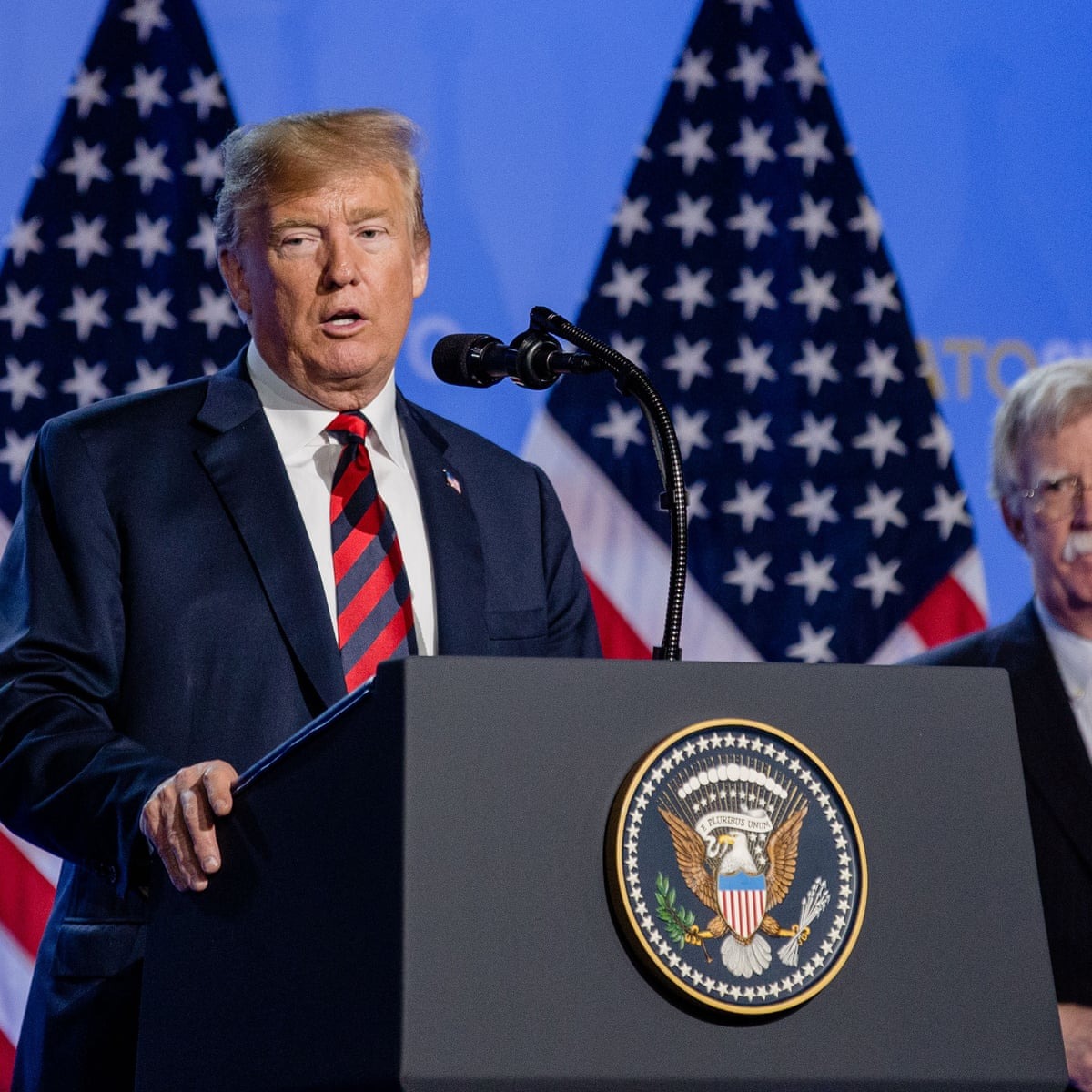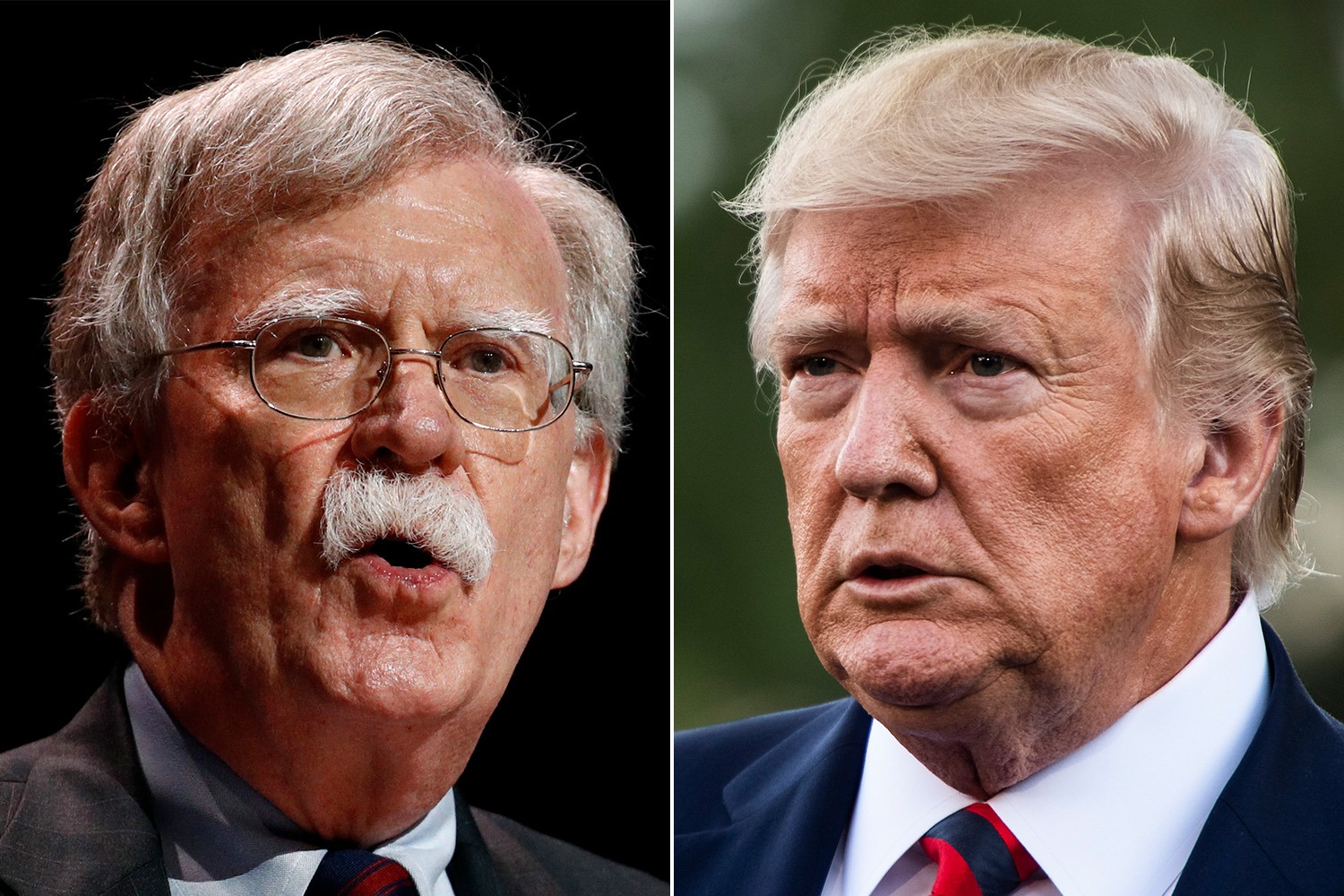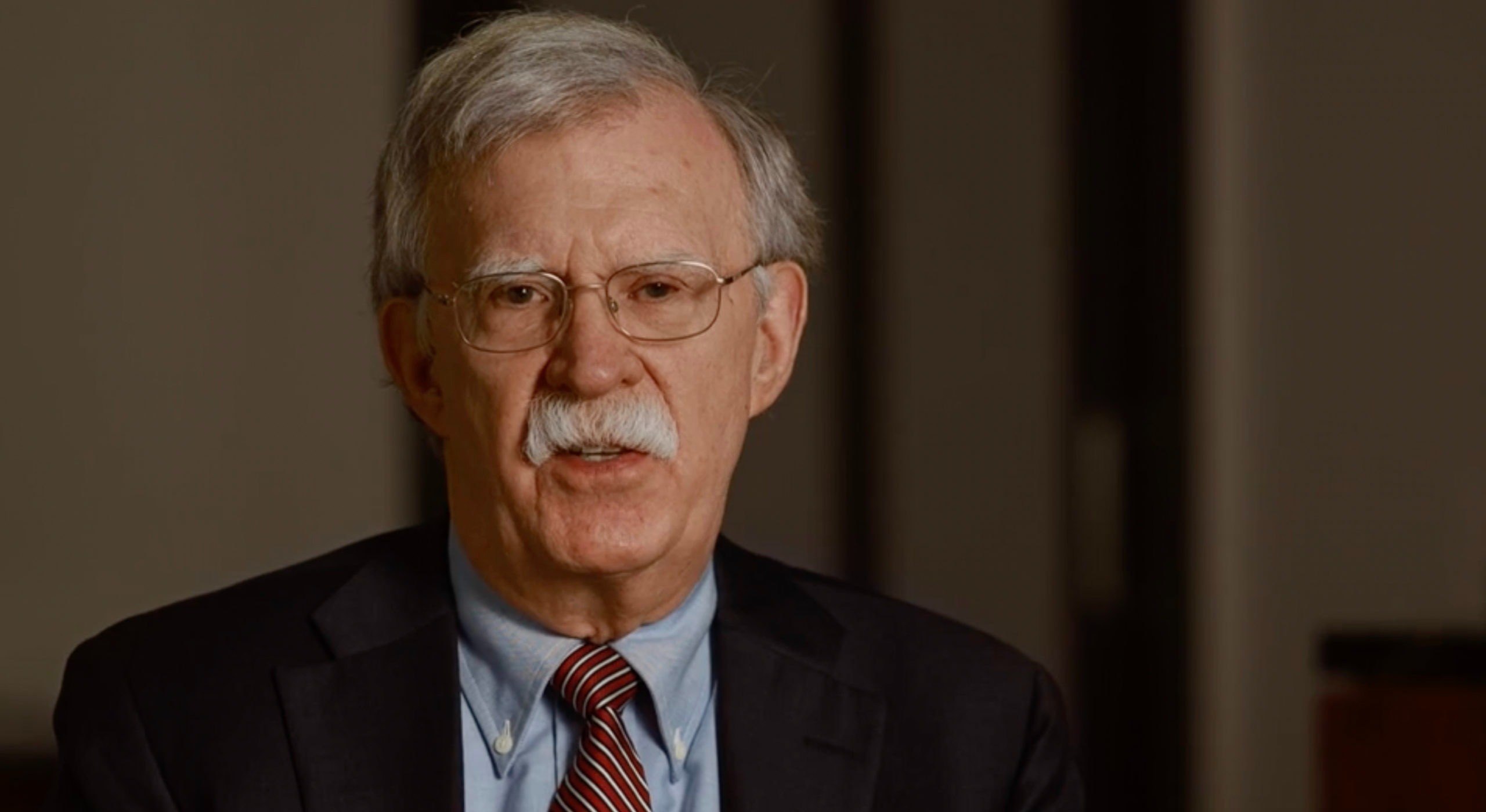John Bolton, a former national security adviser, shared insights that could potentially prevent Donald Trump from pulling the United States out of NATO if he is re-elected. During a recent conversation on The MeidasTouch Network, Bolton discussed Trump’s previous declarations that jeopardized NATO’s future. In February, Trump stated that he would let Russia take whatever actions it wished against NATO countries that failed to meet defense spending expectations.
Bolton suggested a unique approach to counteract Trump’s intentions: distracting him. Given Trump’s tendency to shift focus quickly, Bolton believes this strategy might temporarily divert Trump from his plans to leave NATO.
He expressed concern, however, that this is a quick look into the possible realities of a second Trump presidency, where unfinished agendas from his first term might resurface and be pursued with renewed vigor.

Donald J. Trump (Credits: The Guardian)
Bolton, who has openly criticized Trump’s understanding and handling of international alliances, recalled instances where Trump deemed NATO “obsolete” and even considered withdrawing from it, as The New York Times reported in 2018. According to Bolton, this stance showcases a lack of understanding of the strategic benefits of alliances like NATO to national security.
President Joe Biden highlighted the potential repercussions of abandoning NATO, critiquing Trump for endangering the alliances that underpin global security.
Biden’s statement emphasized the risk Trump’s attitude poses to Ukraine’s fight for sovereignty and the safety and stability of Poland and the Baltic States.

Donald J. Trump and John Bolton (Credits: New York Post)
Echoing Biden’s concerns, Bolton, in a Politico interview, stressed that leaving NATO would severely compromise U.S. national security. He pointed out Trump’s persistent lack of grasp on the importance of alliance structures, emphasizing that his indifference to the potential fallout sets him apart from mainstream political thought.
According to Bolton, the consensus among most political figures recognizes NATO’s critical role, with only a fringe minority dismissing its importance.
These discussions shed light on the ongoing debate over the United States’ commitment to NATO and the broader implications for international relations and security.
Bolton’s remarks underscore the tension between Trump’s isolationist tendencies and the established understanding of NATO’s value in fostering collective defense and global stability.























